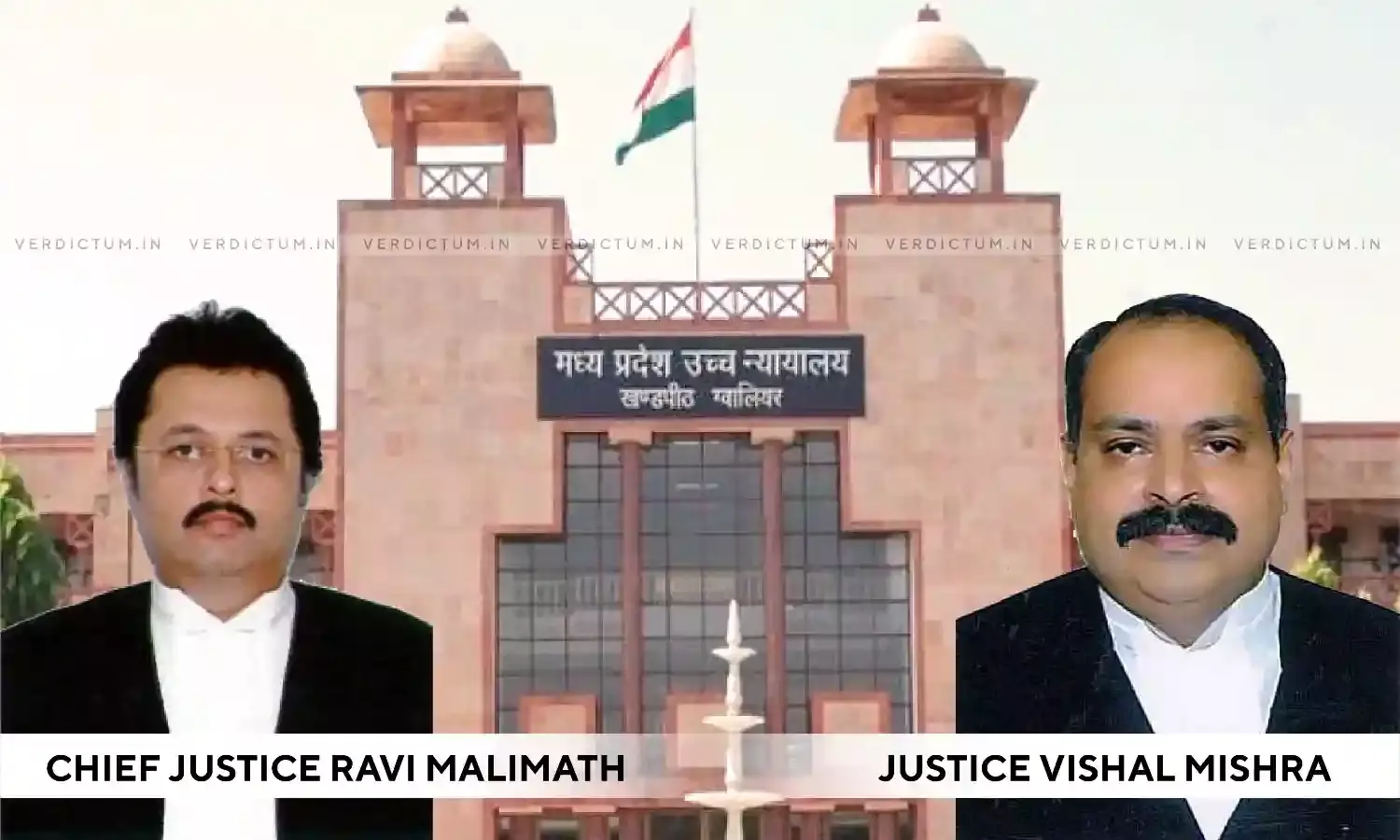Integrity And Devotion Of Judge Cannot Be Doubted Only Because Adjournment Was Granted - Madhya Pradesh High Court
The Madhya Pradesh High Court's Division Bench comprising Chief Justice Ravi Malimath and Justice Vishal Mishra has set aside the order of the Disciplinary Authority whereby an ex-Judge of the lower court was held guilty of misconduct.
The Court in this context observed that merely because adjournments were granted the integrity and devotion of a Judge cannot be doubted.
"It is not proper to come to a conclusion that only because an adjournment has been granted, the integrity of a Judge has to be doubted. Only because adjournment is granted, it cannot be said that it lacks devotion by the Officer," the Bench opined.
In this case, the respondent namely the High Court of Madhya Pradesh proposed to hold a departmental enquiry against an ex-Judge of the lower Court.
The Charges against the petitioner was that he had granted bail in disregard to the mandatory provisions of Section- 59A of the Madhya Pradesh Excise Act and it was held that the order was passed with corrupt motive or extraneous consideration. Other charges pertained to grant of adjournments by him.
The Enquiring Officer submitted his detailed report to the Disciplinary Authority exonerating the petitioner from all the charges. It was held that the charges were not proved. The matter was placed before the Disciplinary Authority. A show cause notice was issued to the petitioner by the High Court indicating that the High Court disagreed with the findings of the Enquiring Officer. The petitioner was found guilty of the charges, thereafter, the impugned order was issued to the petitioner compulsorily retiring him from service.
Aggrieved the Petitioner approached the High Court.
Senior Advocate Brian Da' Silva appearing for the petitioner contended that the Enquiring Officer had held that the charges were not proved. He further contended that the Disciplinary Authority came to the conclusion that the findings recorded on Charge Nos.1, 2, 4 and 5 were wrongly considered by the Enquiring Officer and reversed the same.
He submitted that no opportunity for a personal hearing was granted to the writ petitioner. He further submitted that there was no complaint against the petitioner in his entire career as a Judge of the Madhya Pradesh Judicial Services.
On the contrary Government Advocate Suyash Thakur contended that the Disciplinary Authority was justified in reversing the findings of the Enquiring Officer. He submitted that the acts of omission and commission by the petitioner had led a doubt as to the reputation of the petitioner.
The Court observed that the Disciplinary Authority came to the view that the bail was granted in disregard to mandatory provision of Section 59 of the Madhya Pradesh Excise Act and, that it was passed with corrupt motive or extraneous consideration.
To which the Court noted "If even according to the Disciplinary Authority, the grant of bail is in violation of the mandatory provisions, the same may reflect upon the competency of the Judge in understanding the law. It cannot lead to a conclusion that he is either corrupt or the order has been passed for extraneous consideration."
On grant of adjournments the Court observed "The Enquiring Officer came to the conclusion that the writ petitioner may have been lenient in the grant of adjournments. We fail to understand as to how the Disciplinary Authority comes to a conclusion that even the leniency to be shown by the Judges to the Bar requires to be ascertained in a microscopic examination."
The Court held that a number of adjournments were given by judges in different cases but only because it was granted, it cannot be said that it lacked devotion by the officer.
"The lack of devotion that has been stated by the Disciplinary Authority, if it is to be accepted on a face value, would infer that no Judge should grant any adjournment to any lawyer in any case at any point of time", the Court noted.
The Court held that the reasons for reversing the findings of the enquiring officer was unsustainable.
The Court also perused the ACRs as well as petitioners' Vigilance File and observed "Therefore, the examination of the entire ACRs as well as his Vigilance File does not indicate that he was an Officer of any doubtful integrity. On the contrary, there were many remarks that he is a good Officer."
Therefore the Court set aside the order passed by the Disciplinary Authority and allowed the Writ Petition.
Click here to read/download the Order




